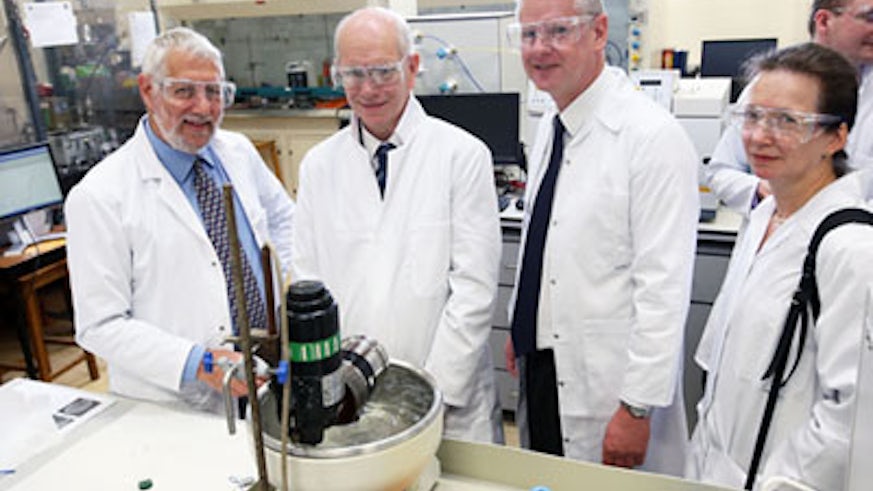Director General in Business, Innovation and Skills visits Cardiff.
31 Gorffennaf 2013

One of the UK higher education sector's top civil servants has visited the University to see how Cardiff is turning its world-leading research into benefits for the economy, society and the environment.
Sir John O'Reilly, who as the UK Government's Director General for Knowledge and Innovation is leading the Department for Business, Innovation and Skills' relationships with higher education, heard about the University's achievements in securing Research Council funding to drive knowledge transfer, commercialisation, innovation, and wider engagement with business.
He spent the morning meeting with researchers and academics working in the fields of brain imaging and neuroscience, integrated renewable energy generation and supply, clean fuels, and aircraft safety.
Hosted by the Vice-Chancellor Professor Colin Riordan, the delegation also included Dr Carolyn Reeve, Head of Policy for University Research and Knowledge Exchange in the Department for Business, Innovation & Skills, the Chief Executive of Higher Education Funding Council for Wales, David Blaney and senior officials from Welsh Government.
The delegation toured the Cardiff Catalysis Institute to hear how novel catalysis research is helping to make every day processes faster, cleaner, economical and more sustainable, followed by a visit to the Cardiff University Brain Research Imaging Centre where researchers are using state-of the-art imaging technology and techniques to seek new insights into the deepest mysteries of the human mind.
The final stop was the University's Morgan-Botti Lightning Laboratory – a lightening simulation and research facility unique to the UK university system which undertakes research into a number of lightning protection topics including how to make carbon composites aircraft safer when struck by lightning.
BIS's Knowledge and Innovation Group also fosters links between the UK's university, science and research base and industry to support economic growth, both through the development of a skilled workforce and through the transfer of new technologies and innovation.
The Group works with three executive agencies – UK Space Agency, Intellectual Property Office and the National Measurement Office – as well as Non Departmental Public Bodies including the Research Councils, Higher Education Funding Council for England, the Student Loans Company and the Technology Strategy Board.